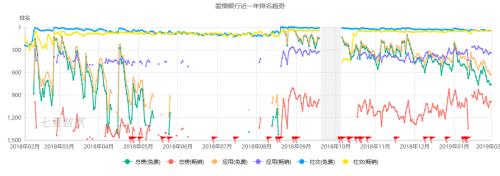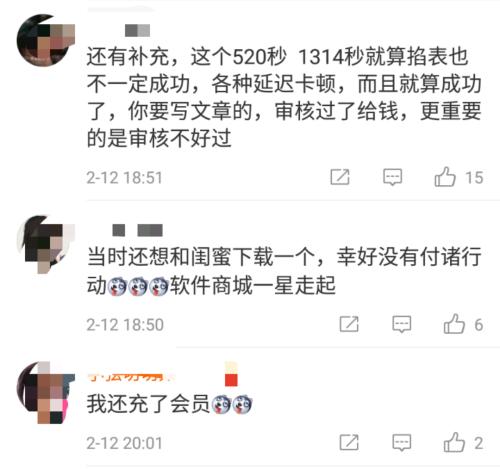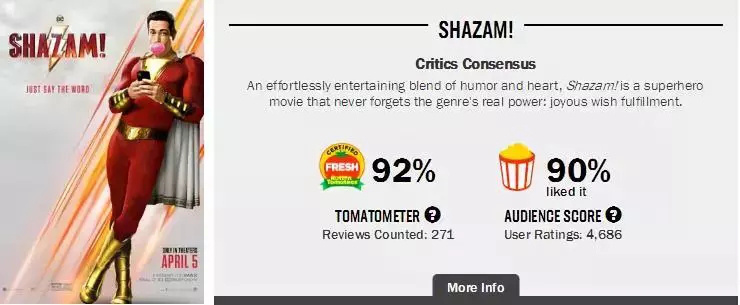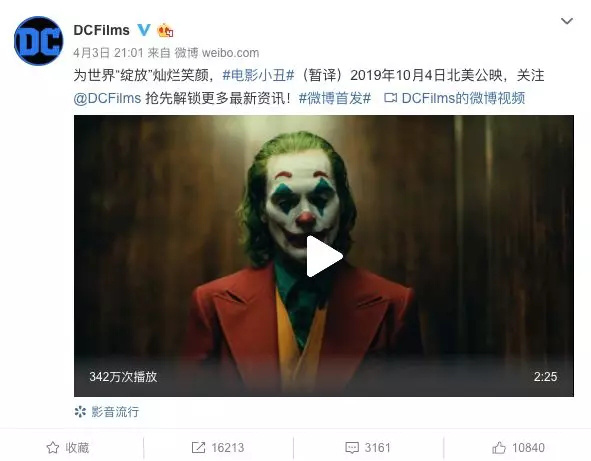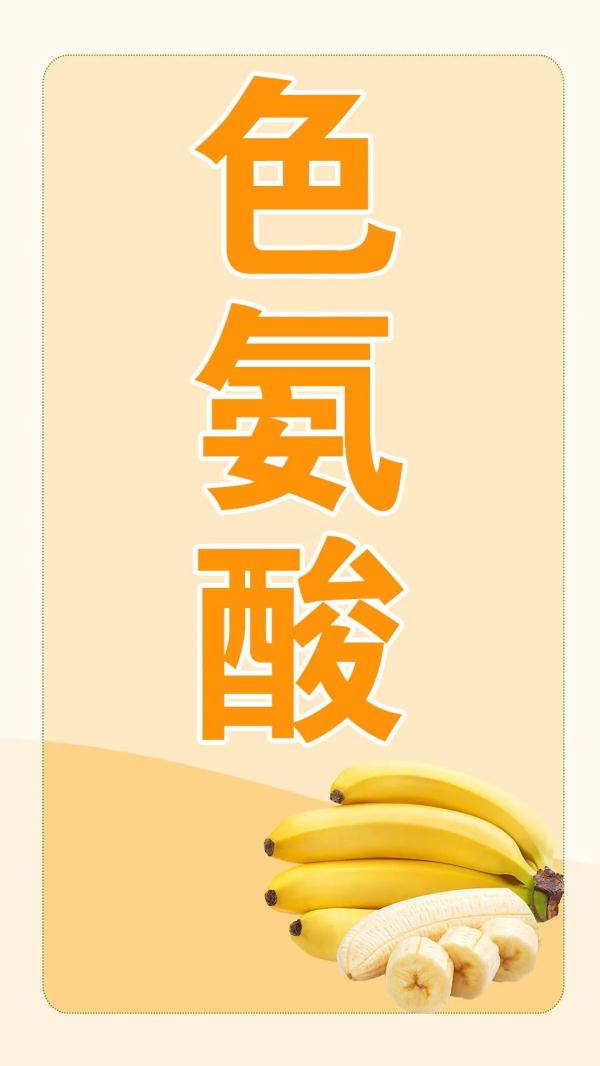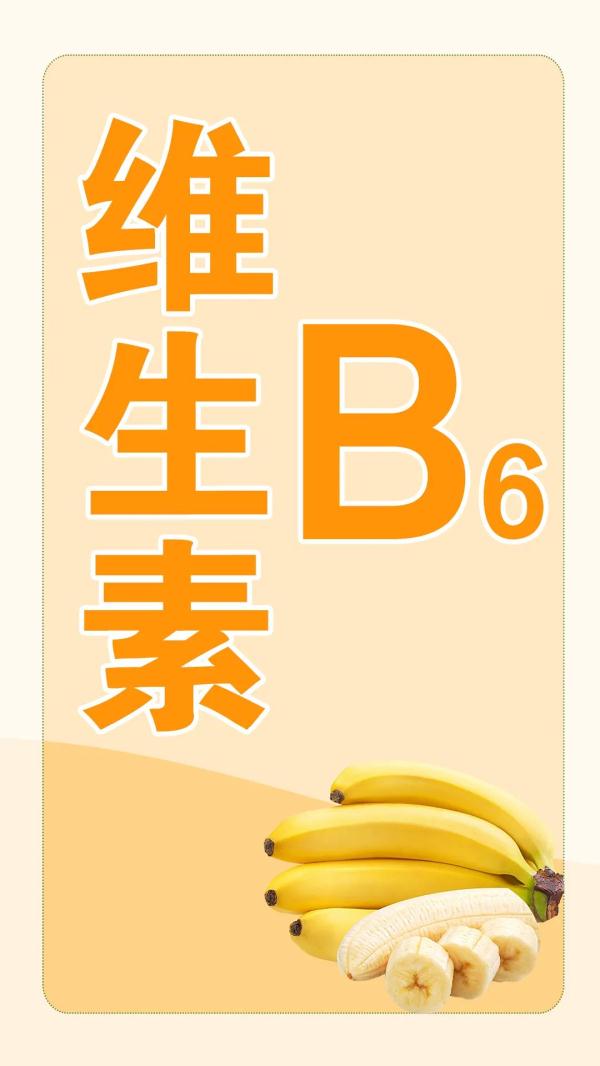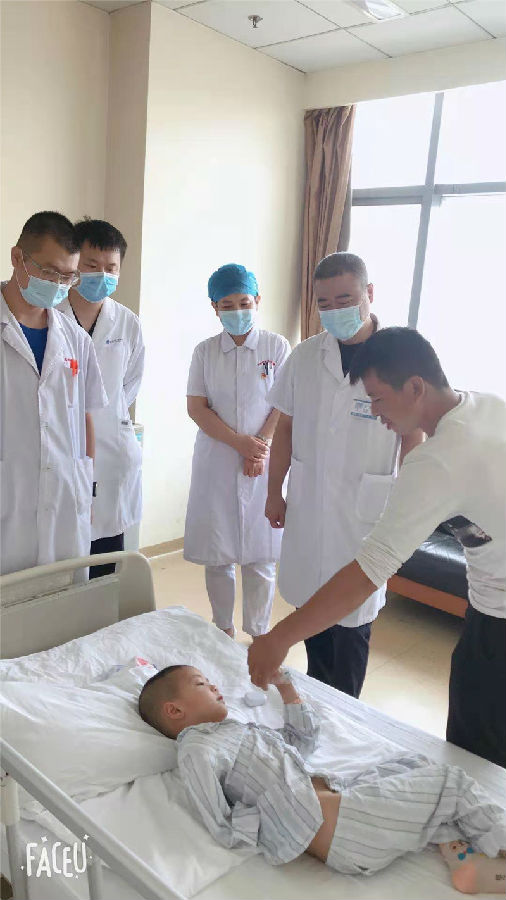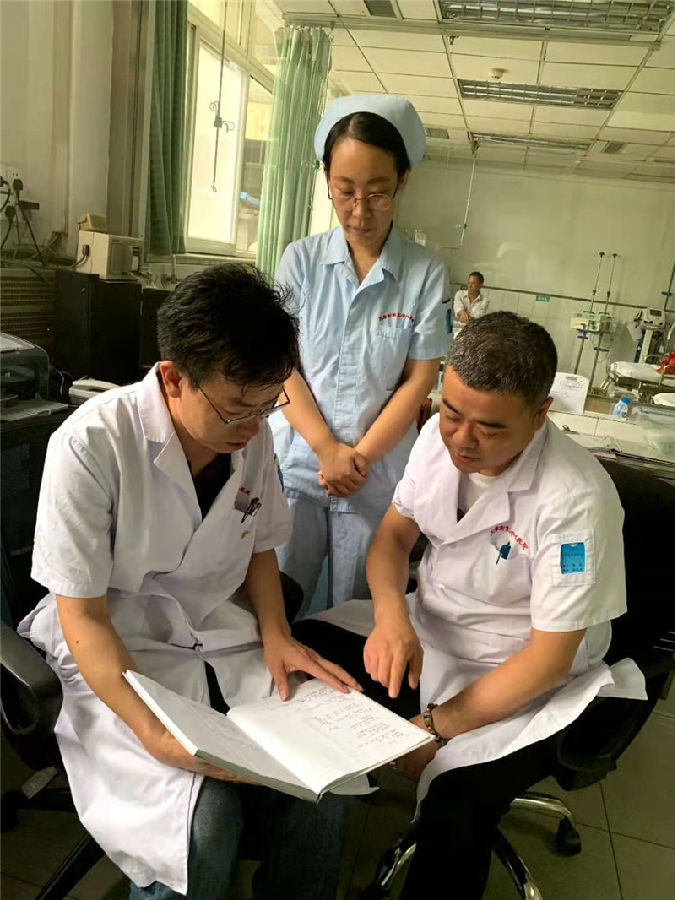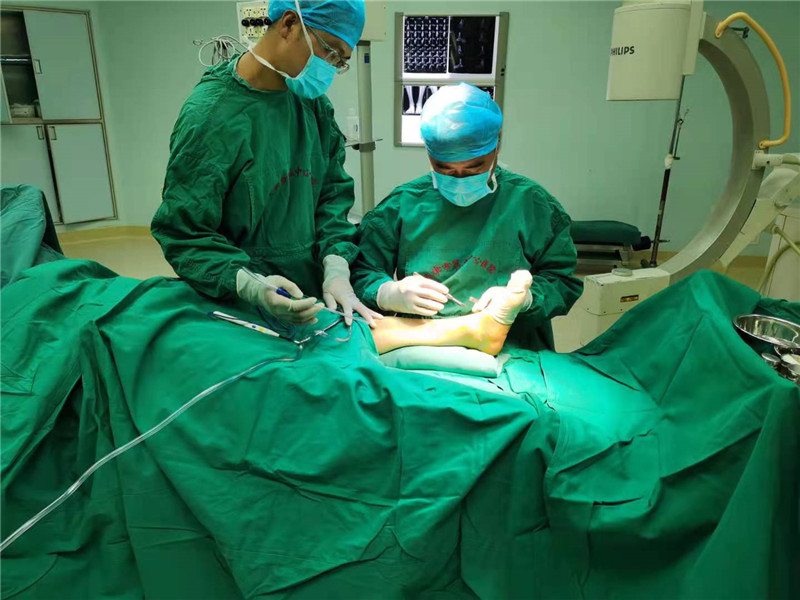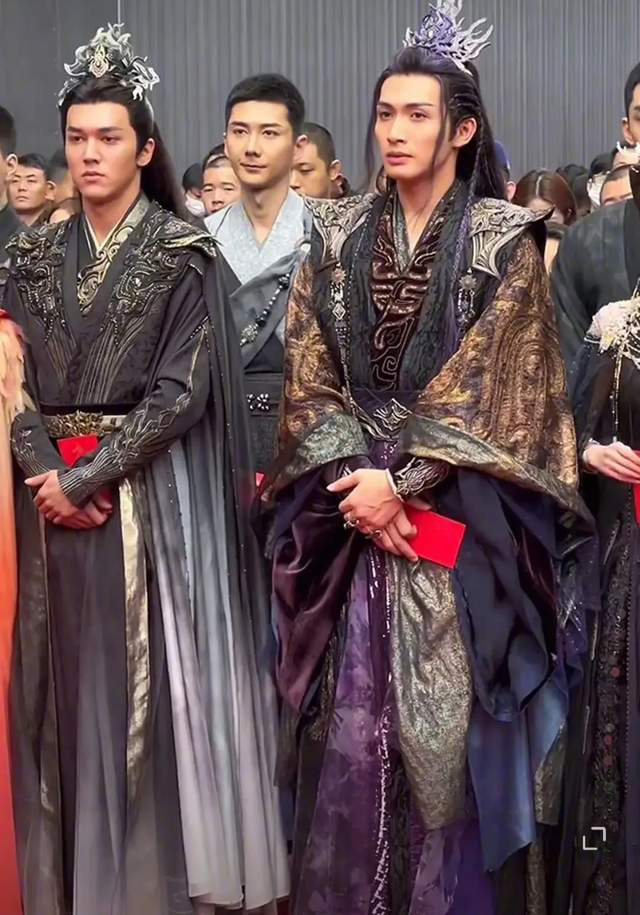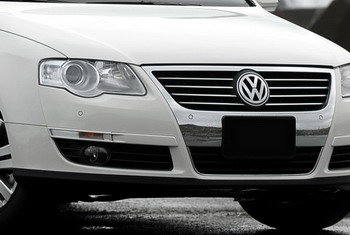The first observation | From the recent important speech of the General Secretary to see the opening year of the National People’s Congress and the National People’s Congress
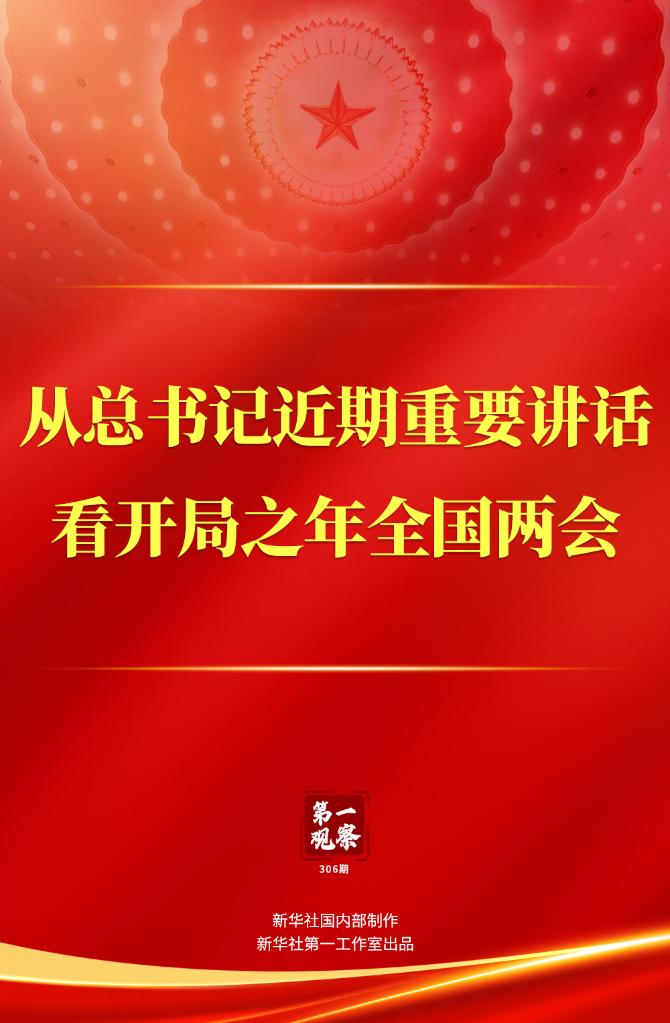
In 2023, the National People’s Congress kicked off.
This year is the first year to fully implement the spirit of the 20th National Congress of the Communist Party of China, and it is of great and far-reaching significance for the people of all ethnic groups in China to forge ahead on a new journey and create new great achievements under the leadership of the Party.
Recently, General Secretary of the Supreme Leader attended a series of important activities, delivered a series of important speeches, and made a series of major arrangements for the work in the first year. From the important agenda and important speech of the General Secretary, we understand the key points of the first year and look forward to the two sessions.
(A) to promote Chinese modernization
The 20th National Congress of the Communist Party of China clearly put forward the mission and task of the Communist Party of China (CPC) in the new era and new journey, and emphasized "comprehensively promoting the great rejuvenation of the Chinese nation with Chinese modernization".
In recent more than a month, General Secretary of the Supreme Leader attended important activities at the Central Party School (National School of Administration) twice, and presided over collective study in the Political Bureau of the Communist Party of China (CPC) Central Committee twice. Both speeches focused on "Chinese modernization".
On February 7th, at the opening ceremony of the seminar on studying and implementing the spirit of the 20th National Congress of the Communist Party of China, General Secretary of the Supreme Leader profoundly expounded a series of major theoretical and practical problems of Chinese modernization. From putting forward the theoretical system of Chinese-style modernization since the 18th National Congress of the Communist Party of China, to further explaining the China characteristics, essential requirements and major principles of Chinese-style modernization, and to emphasizing the correct handling of six major relations, the "first lesson" in the first year has further pointed out the path and provided guidance for vigorously promoting Chinese-style modernization.
On January 31st and February 21st, General Secretary of the Supreme Leader presided over the Political Bureau of the Communist Party of China (CPC) Central Committee’s collective study twice, focusing on "accelerating the construction of a new development pattern" and "strengthening basic research" respectively, which are important events related to the start of a new journey and the steady and far-reaching modernization of Chinese style.
On March 1st, at the celebration meeting of the 90th anniversary of the founding of the Central Party School and the opening ceremony of the spring semester in 2023, General Secretary of the Supreme Leader emphasized that the constant initial intention of the Party School is to cultivate talents and offer suggestions for the Party. Party schools at all levels should stick to this initial intention, forge ahead, work hard and make new contributions to building a socialist modern country and promoting the great rejuvenation of the Chinese nation in an all-round way.
At the two sessions of the National People’s Congress, representatives from all walks of life in various regions discussed the country around Chinese modernization and made suggestions and suggestions, which will further inspire hundreds of millions of people to join in the construction of a strong country and devote themselves to national rejuvenation.
(2) Make the Party’s ideas become the will of the state.
On February 21, the Political Bureau of the Communist Party of China (CPC) Central Committee held a meeting;
On February 28th, the Central Committee of the Communist Party of China held a democratic consultation meeting in Zhongnanhai.
From February 26th to 28th, the Second Plenary Session of the 20th CPC Central Committee was held … …
In late February, there were two key words in several important meetings hosted and attended by General Secretary of the Supreme Leader — — "General election" and "institutional reform". These two keywords are closely related to this year’s National People’s Congress.
"general election" — — It is an important task of the National People’s Congress and the National People’s Congress to elect the new state organs and leaders of Chinese People’s Political Consultative Conference, and it is also a major event that has a bearing on the overall situation;
"Institutional reform" — — Part of the "Party and State Institutional Reform Plan" deliberated and adopted by the Second Plenary Session will be submitted to the First Session of the 14th National People’s Congress for deliberation in accordance with legal procedures. This reform of the party and state institutions highlights key industries and fields, with strong pertinence, great strength, wide coverage and deep interests. Efforts will be made to solve some difficult problems of great significance and social concern, which will have an important impact on economic and social development.
Taken together, these important agendas are the vivid practice of fully promoting democracy and effectively building consensus under the centralized and unified leadership of the CPC Central Committee, which shows an enterprising posture of uniting all forces that can be United, mobilizing all positive factors that can be mobilized, and promoting the development of the party and the country on the new journey.
The National People’s Congress and the National People’s Congress are platforms for fully demonstrating people’s democracy in the whole process. More than 5,000 deputies conscientiously performed their duties and fully deliberated and discussed. The party’s ideas will become the will of the state through legal procedures, and the party’s heart will resonate with the people’s hearts at the same frequency. The grand blueprint of the party’s 20 th National Congress will surely become a reality.
(C) unite the confidence and strength of unity and struggle
At present, the world has entered a new period of turbulence and change, and China’s development has entered a period in which strategic opportunities and risk challenges coexist and uncertainties and unpredictable factors increase. In the face of challenges, it is particularly important to strengthen confidence.
On February 16th, The Politburo Standing Committee (PSC) held a meeting to listen to the recent report on the prevention and control of epidemic situation in COVID-19. General Secretary of the Supreme Leader presided over the meeting and delivered an important speech. The meeting pointed out that China "achieved a major decisive victory in epidemic prevention and control, creating a miracle that a populous country successfully emerged from the epidemic in the history of human civilization", demanding that "we should cherish the important achievements of the anti-epidemic struggle, tell a good story about China’s anti-epidemic, and inspire the whole party and people of all ethnic groups to firmly win confidence and forge ahead courageously in the new era and new journey";
On February 28th, the Central Committee of the Communist Party of China held a democratic consultation meeting. General Secretary of the Supreme Leader delivered an important speech, hoping that the central committees of democratic parties, the All-China Federation of Industry and Commerce and personages without party affiliation would "clearly understand the situation, convey confidence, unite and lead the broad masses of members and the people they contacted to unify their thoughts and actions in the decision-making arrangements made by the Central Committee of the Communist Party of China, actively make suggestions and suggestions, build a broad consensus, do a targeted job in solving doubts, explaining doubts, educating and guiding, and work hard in unity to achieve the goals and tasks for the whole year" … …
Recently, Qiushi magazine published two important articles by General Secretary of the Supreme Leader — — "Several Major Issues in Current Economic Work" was part of an important speech at the Central Economic Work Conference on December 15th last year. "The only way for the party and people to forge ahead in the new era" was the main point of the speech when the National People’s Congress participated in the deliberation of the Inner Mongolia delegation last year.
From emphasizing "improving social psychological expectations and boosting development confidence" and "earnestly implementing ‘ Two unwavering ’ " To firmly understand the "Five Necessary Ways", publishing these two articles at this time conveys a clear signal of boosting confidence and strengthening confidence.
(D) Create more opportunities for the world.
"This year is the first year for China to fully implement the spirit of the 20th National Congress of the Communist Party of China. China’s high-quality development and modernization process will bring new opportunities to all countries in the world, including Belarus." On March 1, when meeting with Belarusian President Lukashenko, the Chairman of the Supreme Leader pointed out.
Lukashenko, on the other hand, said, "I firmly believe that under the strong leadership of the Supreme Leader, China will continue to achieve new brilliant achievements" and "I wish the upcoming National Conference in China a complete success, and believe that this will have an important impact on the future of China and the world" … …
Recently, a number of foreign dignitaries visited China, and the head of state’s diplomacy was particularly busy. Since the beginning of the year, the Chairman of the Supreme Leader has held talks and meetings with leaders of the Philippines, Turkmenistan, Cambodia, Iran, Belarus and other countries, and maintained close exchanges with friendly people from various countries through letters and telephone calls.
In 2023, the development of China has attracted the attention of all countries. From world leaders’ visits to China to seek cooperation, to the International Monetary Fund’s substantial increase in China’s economic growth forecast this year, and then to the report of the American Chamber of Commerce in South China, it shows that over 90% of the enterprises surveyed regard China as one of the most important investment destinations … … All parties hope that China will develop better in the new year and bring more opportunities to the world.
In the face of the unprecedented changes in the accelerated evolution of the world, under the leadership of the Supreme Leader, China has always adhered to the foreign policy purpose of safeguarding world peace and promoting common development. At the end of February, China released two important documents, the Concept Document of Global Security Initiative and China’s Position on Political Settlement of the Ukrainian Crisis, which showed the determination and responsibility of a responsible big country.
The recent series of important speeches by General Secretary of the Supreme Leader are of great guiding significance for us not to be afraid of any storms on the voyage ahead, to run our own affairs with firm confidence, and to unswervingly promote Chinese-style modernization. It is also an important follow-up for the success of the two sessions of the National People’s Congress. In the first year of the National People’s Congress, we look forward to it together.
Planning: Huo Xiaoguang
Lead writers: Yang Yijun, Huang Yue
Coordinator: Zhang Xiaosong, Hui Luo and Wang Xuan.
Vision | Editor: Yang Wenrong, Bao Yuhan
Xinhua News Agency produced domestically.
Produced by the first studio of Xinhua News Agency









